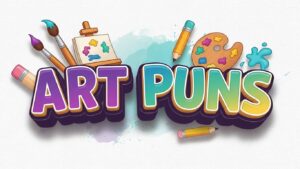
Building Knowledge and Pride Through Animation
Animation has long been recognized as a powerful educational tool, capable of engaging children’s attention while imparting valuable knowledge. For African American children in particular, cartoons featuring characters who share their cultural background can provide unique educational benefits that extend beyond traditional academic content. These animated series combine entertainment with education, creating meaningful learning experiences that resonate with young viewers.
Educational research consistently demonstrates that children learn more effectively when they see themselves reflected in their educational materials. When African American children encounter positive representations in educational cartoons, they experience a form of validation that can boost self-esteem and academic engagement. Dr. Marian Wright Edelman, founder of the Children’s Defense Fund, famously noted that “you can’t be what you can’t see,” highlighting the importance of representation in shaping children’s aspirations.
Series like “Sing While You Learn” exemplify this approach, using music and engaging visuals to teach concepts while featuring diverse characters. Episodes covering topics from science to social skills provide educational content while normalizing Black characters in learning environments. This representation counters harmful stereotypes about academic achievement that African American children might encounter elsewhere.
Historical content offers another crucial educational dimension. Shows like “Xavier Riddle and the Secret Museum” introduce children to historical figures including prominent African Americans such as Rosa Parks, Harriet Tubman, and George Washington Carver. By presenting these historical icons as relatable characters, these kids animated shows make history accessible while instilling pride in African American heritage.
Cultural Literacy and Identity Formation
Beyond academic content, African American cartoons contribute significantly to cultural literacy and positive identity formation. Animation provides a versatile medium for introducing children to elements of Black culture, from music and art to language patterns and traditions.
“The Adventures of Matthew Lofton-Lynch” incorporates cultural references that African American children might recognize from their own experiences, creating a sense of familiarity and belonging. For non-Black viewers, these elements provide valuable exposure to cultural diversity, fostering cross-cultural understanding from an early age.
Language represents a particularly important aspect of cultural literacy. Some animated series incorporate African American Vernacular English (AAVE) or code-switching between different speech patterns, reflecting linguistic realities in many Black communities. When presented respectfully, these linguistic elements validate children’s lived experiences while teaching all viewers about language diversity.
Social-Emotional Learning Through Diverse Stories
The educational value of African American cartoons extends into social-emotional learning (SEL), an increasingly emphasized area in early childhood education. By portraying Black characters navigating friendships, family dynamics, and community relationships, these shows provide models for healthy social interaction.
Shows addressing racism and discrimination offer particularly valuable teaching opportunities. Rather than avoiding difficult topics, thoughtfully created children’s animation can introduce concepts like fairness, empathy, and standing up for others in age-appropriate ways. Episodes might show characters experiencing and responding to prejudice, offering viewers tools for recognizing and addressing these issues in their own lives.
Digital Literacy and STEM Engagement
As education increasingly emphasizes STEM (Science, Technology, Engineering, and Mathematics), African American cartoons have begun incorporating these elements. Series featuring Black characters engaging with technology and scientific concepts help counter the underrepresentation of African Americans in STEM fields.
Doc McStuffins” stands out in this regard, featuring a young Black girl using scientific thinking to diagnose and “treat” toy ailments. Research has shown that exposure to such representation can influence career aspirations, particularly for girls of color who face intersectional barriers in STEM fields.
Partnering with Parents and Educators
The educational impact of African American cartoons is maximized when parents and educators actively engage with the content alongside children. Discussion questions, extension activities, and real-world connections can transform passive viewing into active learning experiences.
Some series offer companion resources specifically designed for this purpose. These resources help adults reinforce the educational messages presented in the animation, creating continuity between screen time and other learning contexts.
As we look toward the future of educational media, African American cartoons will continue playing a vital role in creating inclusive learning environments. By combining entertainment with representation and educational content, these animated series contribute to academic achievement, cultural pride, and social understanding for children of all backgrounds.





